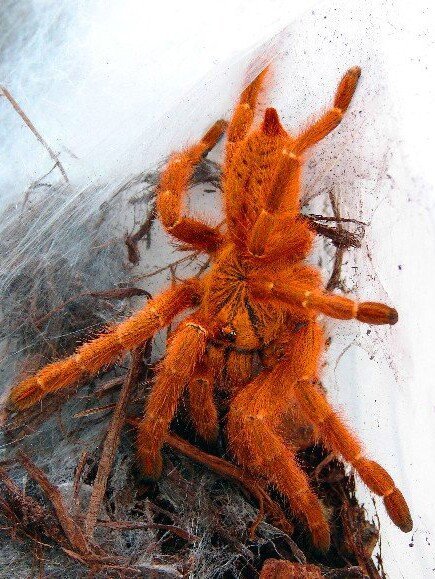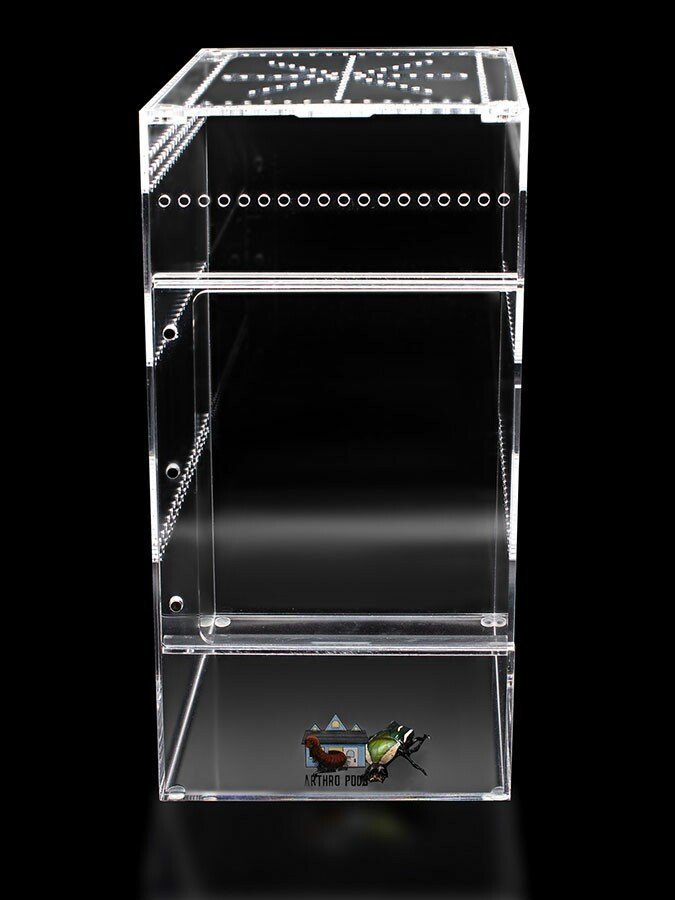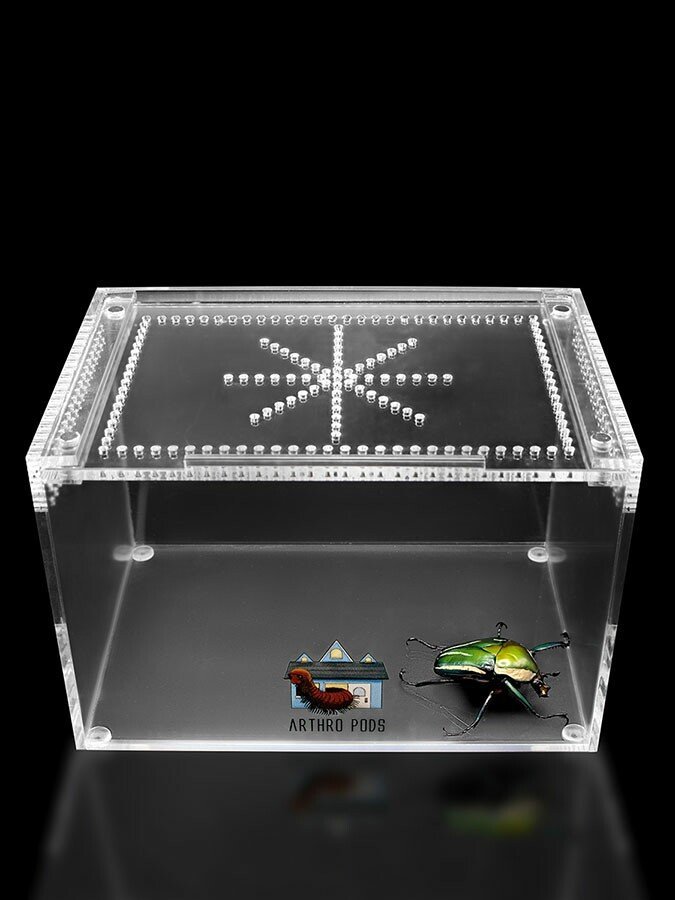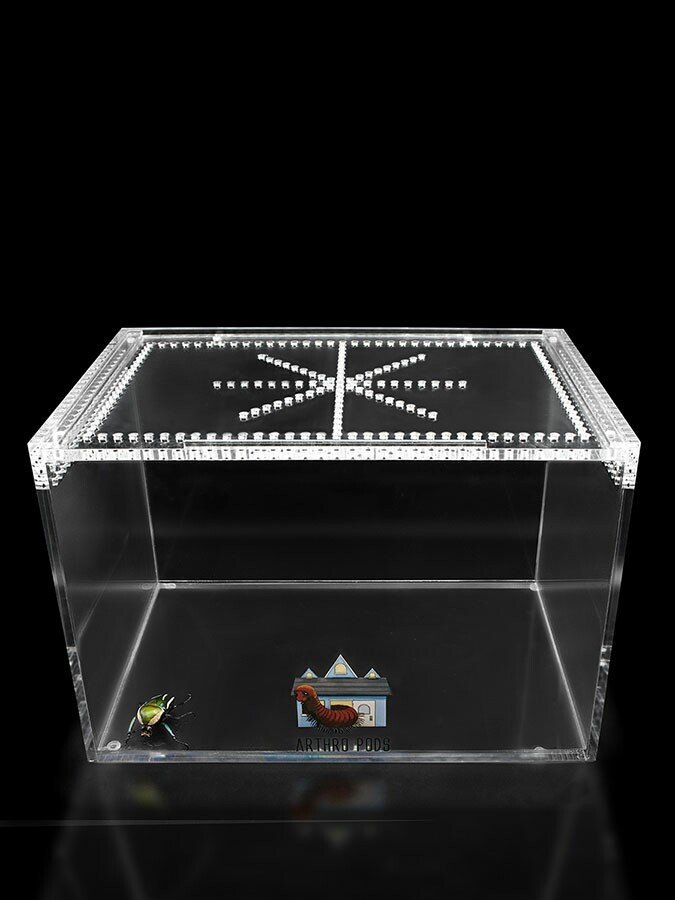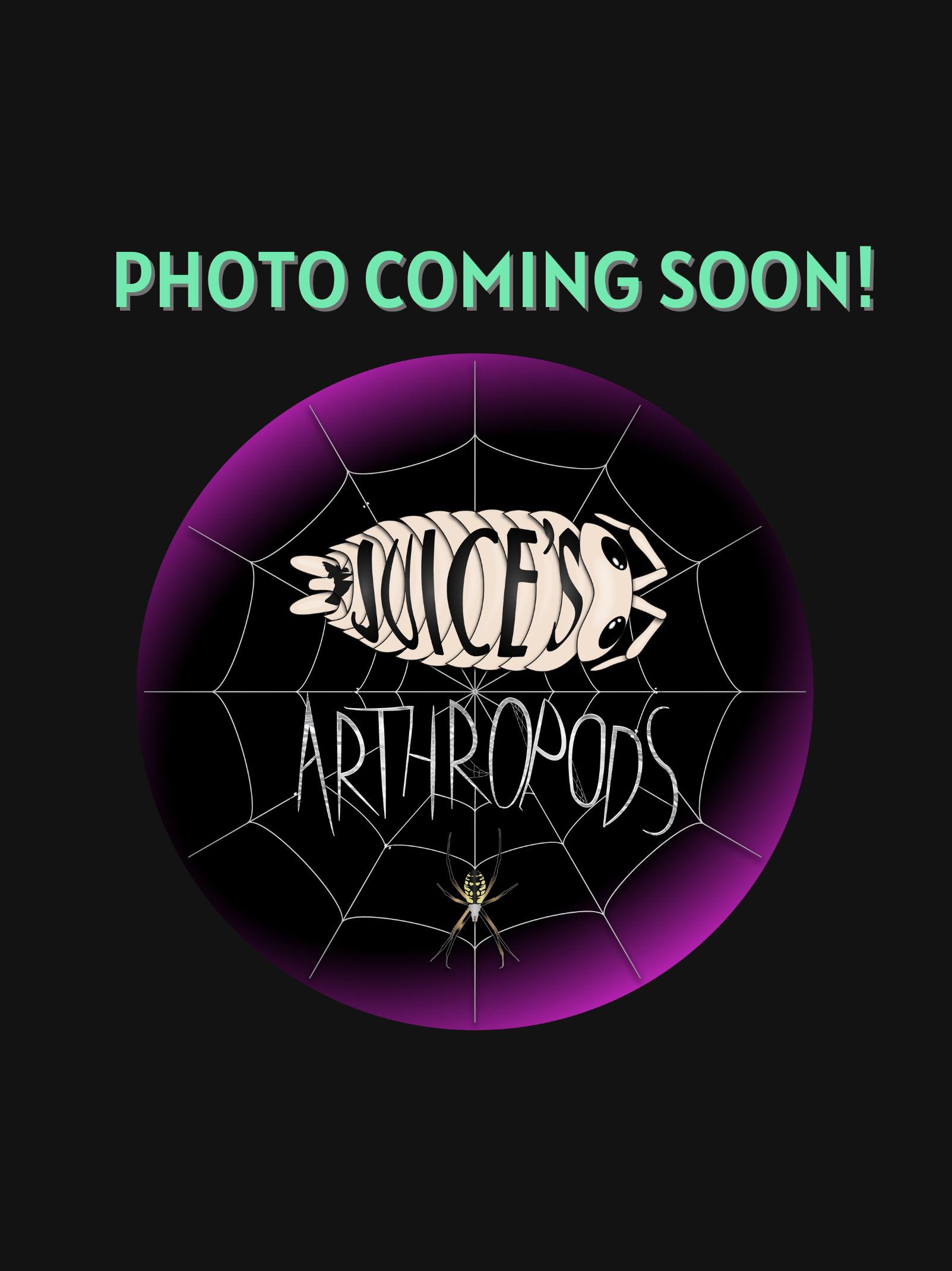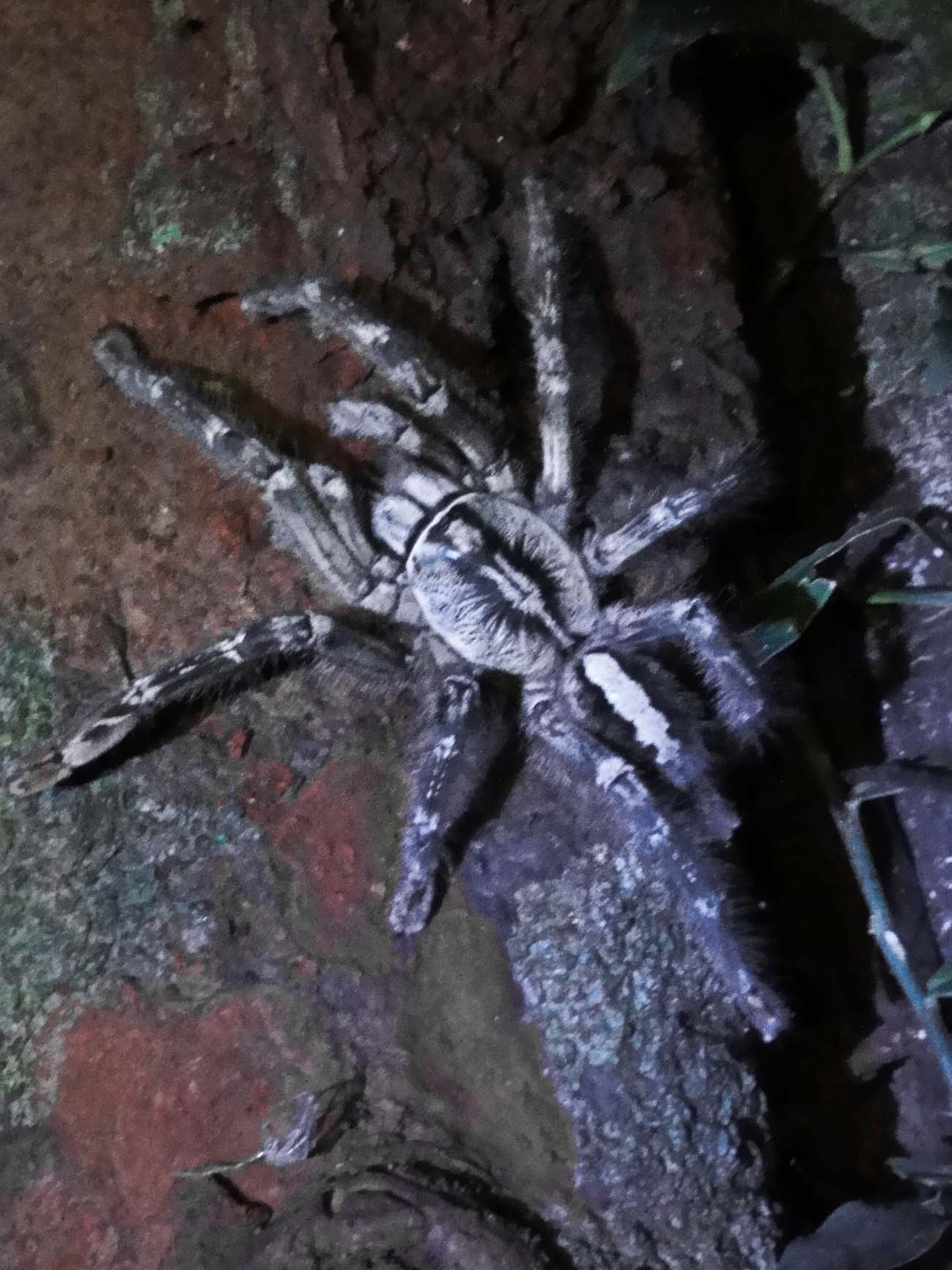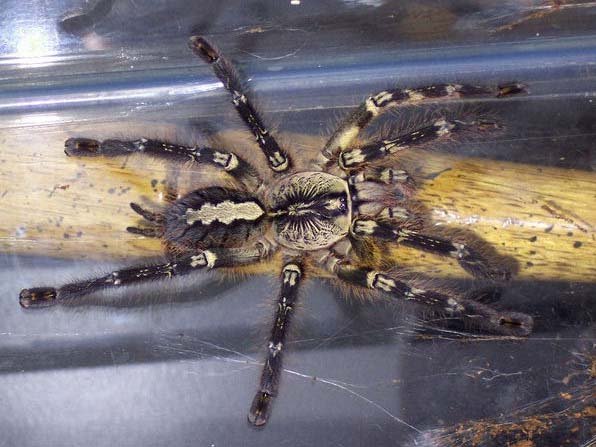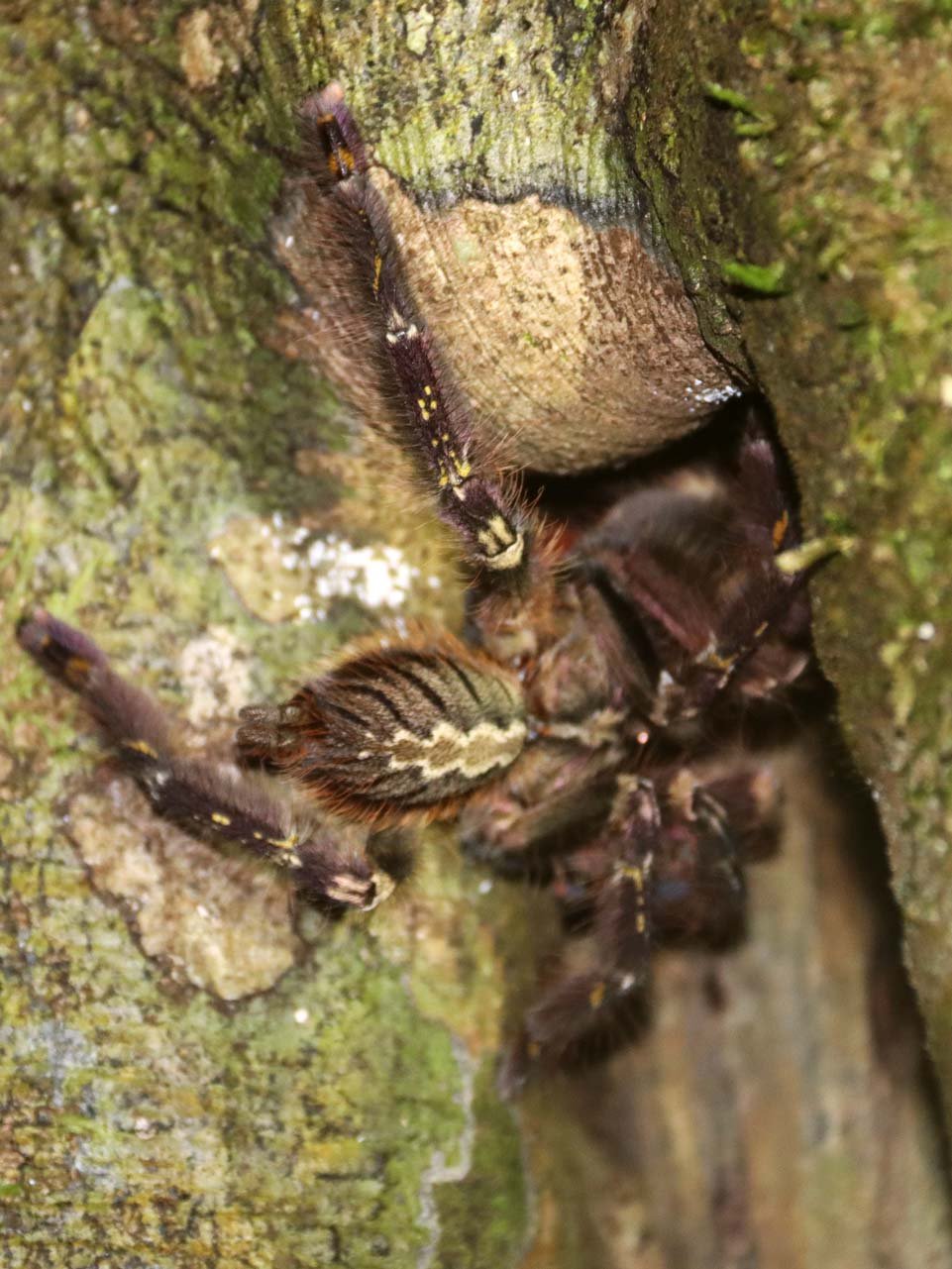Pterinochilus murinus
Commonly referred to as the Orange Baboon Tarantula, “OBT,” or the “Orange Bitey Thing.” Hundreds of videos will show this tarantula baring their fangs, often sometimes flipped entirely on their back in a warning that if you come closer, you will get a dose of medically significant venom. In my experience of keeping several hundred of them as slings and up to adulthood, they tend to lean more towards flight than fight, choosing the latter only if cornered or bothered too much. Having owned thousands of tarantulas, I’d much rather have a tarantula that bares its fangs telling you to back off than one who bites first and asks questions later. Treat them with respect, don’t stress them out, and do not come at them from above, and you will, 95% of the time, experience minimal threat poses, and instead watch them bolt into their homes.
Commonly referred to as the Orange Baboon Tarantula, “OBT,” or the “Orange Bitey Thing.” Hundreds of videos will show this tarantula baring their fangs, often sometimes flipped entirely on their back in a warning that if you come closer, you will get a dose of medically significant venom. In my experience of keeping several hundred of them as slings and up to adulthood, they tend to lean more towards flight than fight, choosing the latter only if cornered or bothered too much. Having owned thousands of tarantulas, I’d much rather have a tarantula that bares its fangs telling you to back off than one who bites first and asks questions later. Treat them with respect, don’t stress them out, and do not come at them from above, and you will, 95% of the time, experience minimal threat poses, and instead watch them bolt into their homes.
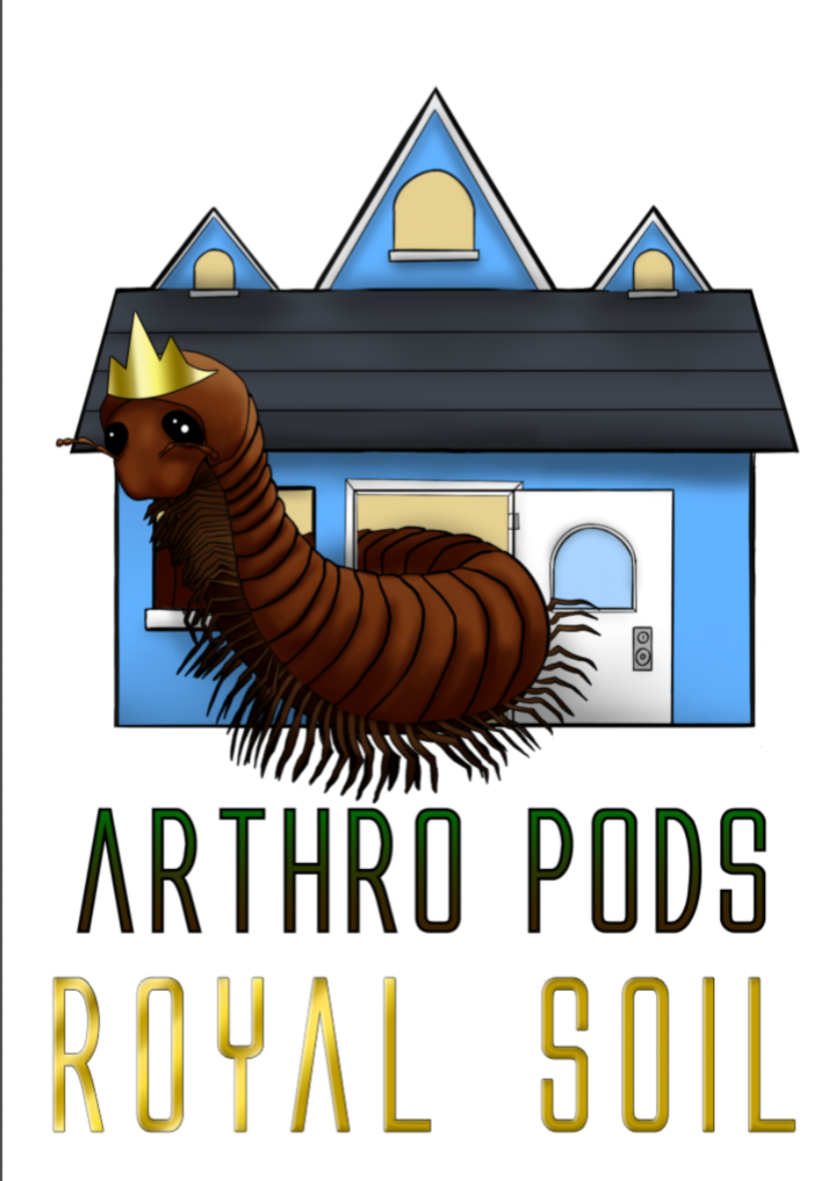
Commonly referred to as the Orange Baboon Tarantula, “OBT,” or the “Orange Bitey Thing.” Hundreds of videos will show this tarantula baring their fangs, often sometimes flipped entirely on their back in a warning that if you come closer, you will get a dose of medically significant venom. In my experience of keeping several hundred of them as slings and up to adulthood, they tend to lean more towards flight than fight, choosing the latter only if cornered or bothered too much. Having owned thousands of tarantulas, I’d much rather have a tarantula that bares its fangs telling you to back off than one who bites first and asks questions later. Treat them with respect, don’t stress them out, and do not come at them from above, and you will, 95% of the time, experience minimal threat poses, and instead watch them bolt into their homes.
What's the ideal diet for an Orange Baboon Tarantula?
All Tarantulas can eat a variety of feeders. Stick to crickets, dubia roaches, silkworms, horned worms occasionally, and a superworm or mealworm as the occasional treat!
How should I keep an Orange Baboon Tarantula?
OBTs are a unique tarantula to care for. They are technically terrestrial tarantulas that tend to live more semi-arboreal, making owning the right enclosure challenging. We’ve seen them use depth like a burrowing tarantula, while others utilized height within their webs. We recommend that all slings use at least a medium Terrestrial Terrain enclosure or a small Arboreal Bliss enclosure. Just ensure they have at least 2 inches of substrate, allowing them to do whatever they want with the space! Feed them as slings once a week, twice if their opisthosoma (abdomen) looks small, but if the opisthosoma is wider than their prosoma (pneumothorax), then wait a couple of days to feed. For juveniles or adults, stick to feeding once a week, nothing larger than their opisthosoma. Make sure to keep a full water dish at all times; wider and deeper is fine. Your tarantula can’t drown; they float on water.
How long could an Orange Baboon Tarantula live?
OBT females are said to live up to 15 years, with males maxing out around 4-5 years. All estimates are based on multiple sources.
Care Guide for Pterinochilus murinus
Key Points
Enclosure setup: Terrestrial, not fossorial. Provide adequate substrate depth but prioritize horizontal space.
Diet: Invertebrate prey. Stick to appropriately sized feeders like dubia roaches and crickets.
Humidity and temperature: 50-65% humidity, 73-78°F. Avoid overly wet conditions.
Longevity: Males 3-4 years, females 10-15 years.
Behavior: Fast, defensive, and prone to threat postures. Exercise caution during rehousing.
Webbing habits: Expect extensive webbing, often in unexpected areas of the enclosure.
Breeding: Moderate fecundity, 100-125 offspring per egg sac.
Appearance: Vibrant orange coloration, visually striking species.
Handling: Not recommended due to speed and defensive nature.
Affordability: Generally inexpensive, making them accessible to many keepers.
Some photos provided by iNaturalist and Wikipedia, credit to:
John Lyakurwa, some rights reserved (CC BY)
Ioannis Magouras, some rights reserved (CC BY)
Matt Reinbold, some rights reserved (CC BY-SA 2.0)



